After the LA wildfires, stories emerge at UC Berkeley of great loss, support and strength
The devastating Palisades and Eaton fires, which ignited a month ago, affected many on campus, whether they suffered loss or knew someone who did.
February 7, 2025
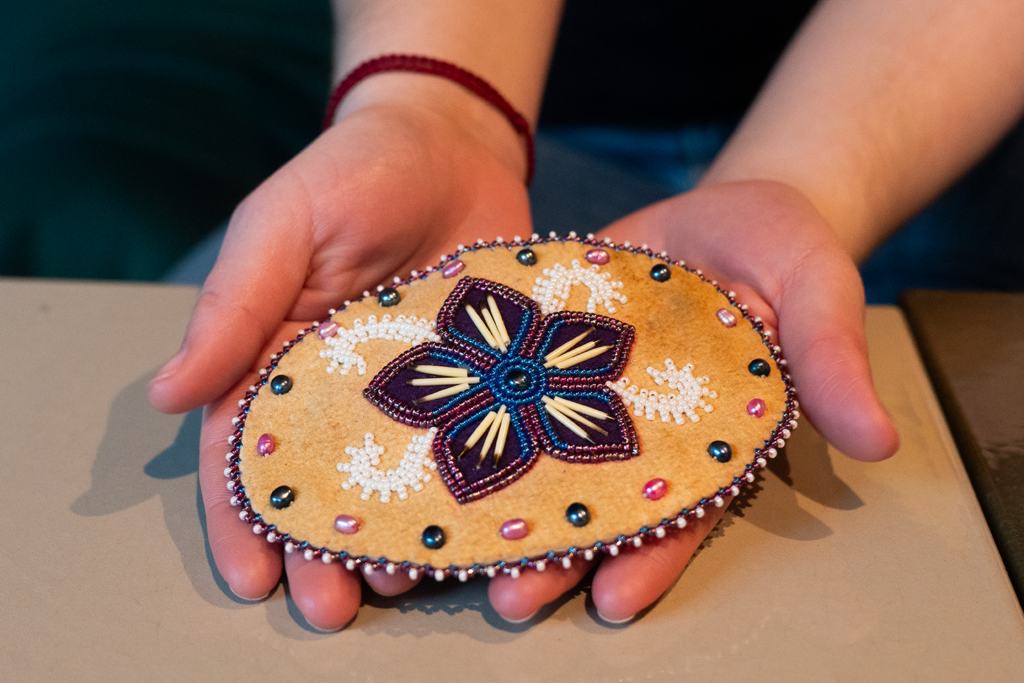
Stanley Luo/UC Berkeley
A barrette crafted by an Indigenous artist in Alaska is all that’s left of UC Berkeley student Erin Wall’s belongings following the catastrophic Palisades Fire. Exactly one month ago today, the inferno ignited, eventually destroying more than 6,800 structures, including her family’s condominium.
The leather hair clip, decorated with beads and porcupine quills, has always been a symbol for Wall of “hope and resilience,” she said, because the Yup‘ik woman who made it for her was an abuse survivor.
Today, this unscathed treasure is helping Wall summon those traits in herself. The fourth-year philosophy student is back at Berkeley, determined to finish her degree. Her family and boyfriend, Berkeley roommate, caring professors and aid offered by the campus to fire victims also are giving her strength.
“My life back home is gone,” said Wall, “but it’s important not to let hardship drag me down.”
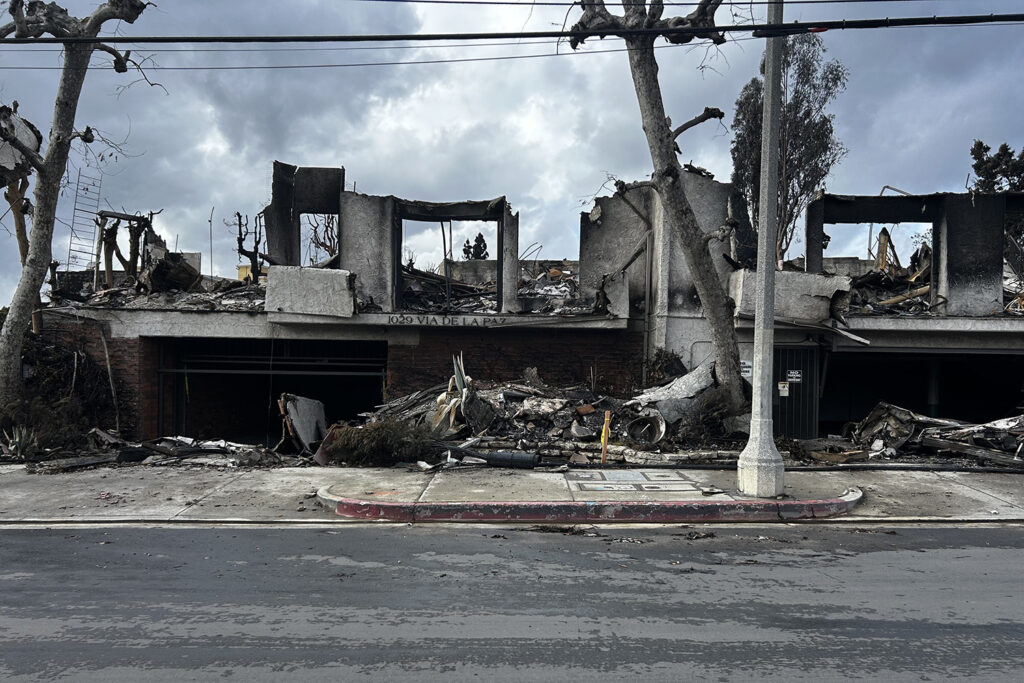
Patrick Wall
Still, it’s hard to shake the shock caused by this disaster. “A lot of us don’t even know what to ask for help with,” she said, or “where to start.”
By “a lot of us,” Wall means all those affected by the fast-moving LA area wildfires, now contained. Both the Palisades Fire and the Eaton Fire began Jan. 7 and rank among the most destructive in California history. They killed a total of 29 people, forced more than 200,000 residents to flee, and burned down or damaged over 18,000 structures, according to Cal Fire.
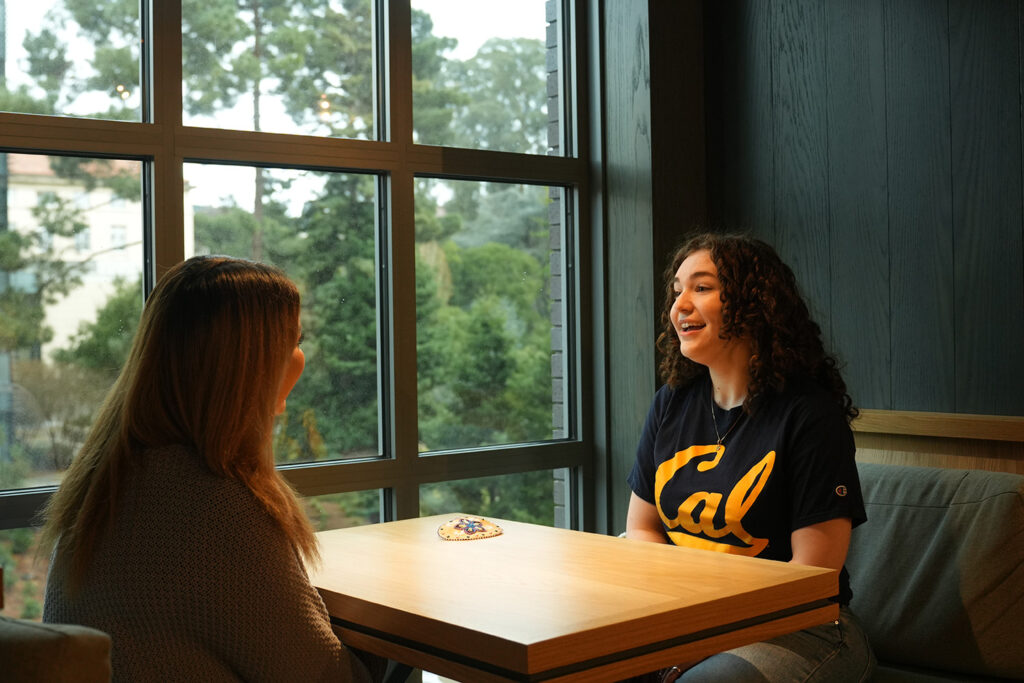
Stanley Luo/UC Berkeley
Campus responds with emergency aid
At Berkeley, about 30% of the student body has a home address in Southern California. At least 200 students are from ZIP codes in the Palisades and Eaton fire zones, according to the registrar’s office.
Dean of Students Sunny Lee issued an email on Jan. 8 to 5,137 students identified by the registrar as from LA and Ventura counties, offering support services. On Jan. 9, Chancellor Richard Lyons sent a message of sympathy to the entire campus community, with links to resources and how to give to the Student Emergency Fund.
Berkeley student leaders pitched in, voting to fund microgrants for campus fire victims to replace their destroyed belongings and partnering with the Cal Student Store to offer free Cal gear. They also held a donation drive in which students dropped off gently used clothing and other essentials at Eshleman Hall for classmates in need.
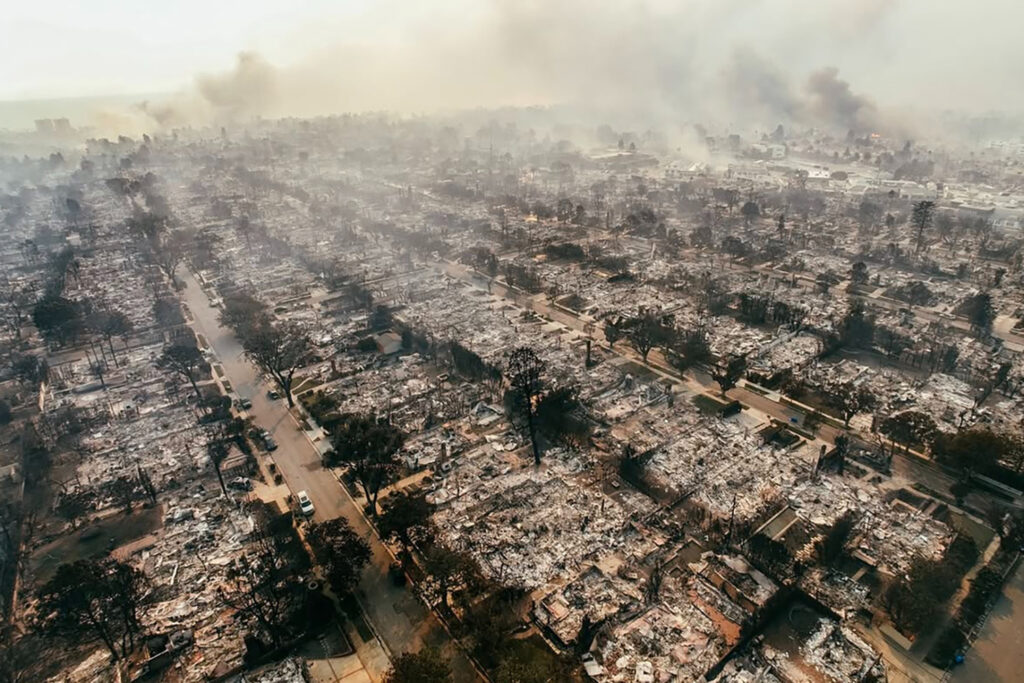
Kit Karzen
“When we heard about the LA fires, it wasn’t just something happening far away — it was affecting people we knew, our friends and classmates,” said ASUC President Shrinidhi Gopal. “Seeing how many students showed up — both to give and to receive — was a reminder of how strong this community is.”
The ASUC also contributed $50,000 to the Student Emergency Fund, which previously had received $200,000 from donors in just three hours’ time, said Cruz Grimaldo, associate vice chancellor and director of financial aid and scholarships.
It’s impossible to know yet how many Berkeley students suffered loss in the fires, said Lee, “since we rely on them letting us know. When there is a tragedy of this magnitude, school or enrolling in school might not be part of someone’s immediate needs, so students might put it off until their acute or basic needs are met.
“In contrast, others may want to return to routine as soon as possible. Each person deals with crises differently.”
This rings true for two Berkeley students, a staff member and a professor who are among many others on campus impacted by this tragedy.
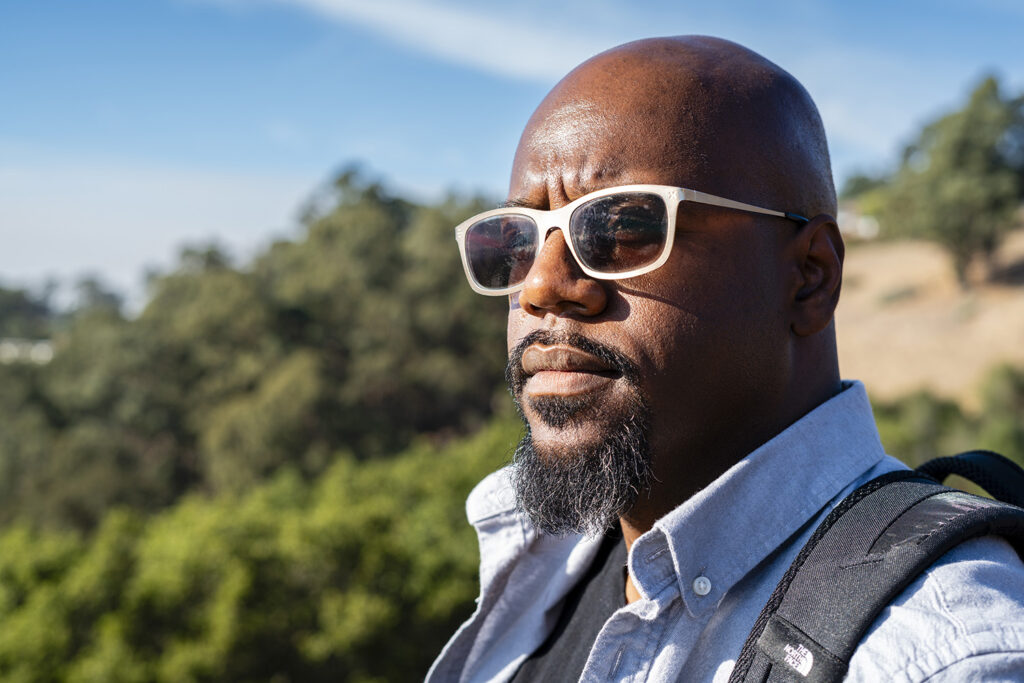
Gail Laird/California Academy of Sciences
‘Like getting punched in the chest’
Professor Chris Schell, an urban behavioral ecologist, was born and raised in Altadena, an unincorporated area of Los Angeles County. There, the Eaton Fire, fueled by strong Santa Ana winds, killed at least 17 people and destroyed more than 9,000 buildings, including — within five hours — the homes of seven of Schell’s relatives.
Schell lives in Richmond, but his maternal grandparents’ house in Altadena, with its large and historic Black community, “was my home, in a deep way,” he said. “It was a safe place to be ourselves, a hub for family, a place that if everything went to hell in a handbasket, we could find refuge there.
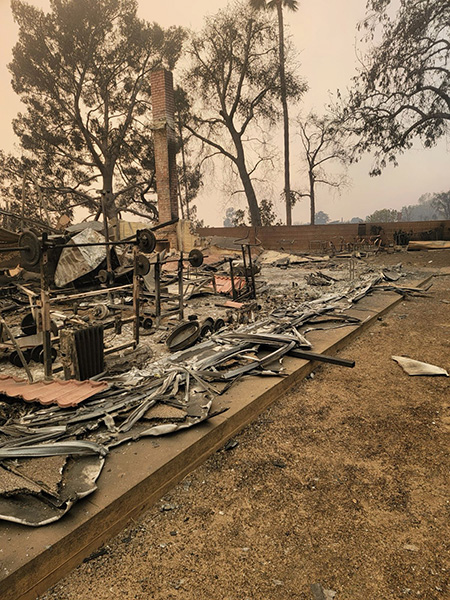
Courtesy of the Washington and Schell family
“It also represented a place where community could gather. It was a forgiving space, … It was the physical manifestation of love and community, and it rocked our core when it was gone. It was like getting punched in the chest.”
His family’s properties had held four generations of the family, starting with the Second Great Migration, between 1940 and 1970, when 5 million Black Americans moved from the nation’s South to the North and West. Altadena became a Black stronghold, one of the few safe havens for Black people to live.
Schell’s mother, grandparents, a brother, an aunt, an uncle and his wife, and three dogs fled the flames on Jan. 7 for downtown LA, where another uncle of Schell’s lives.
The home of Schell’s father and stepmother in Altadena was spared, but although the flames stopped just blocks away, it has major smoke damage.
Schell said many people at Berkeley are not likely aware of his situation, but that he imagines everyone in the broader campus community knows at least one person impacted by the fires.
“It’s not like there’s a community-wide list,” he said. “But if you don’t know someone on campus, you know of somebody in LA who also is experiencing hardship — their house burned down, or they’re mitigating smoke damage, or they can’t drink the water.”
Childhood memories, concern for others

Matthew Rodman
Student Maxwell Rodman was recovering from knee surgery at his family’s home in Pacific Palisades when the Jan. 7 evacuation orders came. The late morning sky was grayish-orange, and a huge cloud of smoke loomed behind the house. Rodman, his mom and his aunt quickly fled; his father was at work.
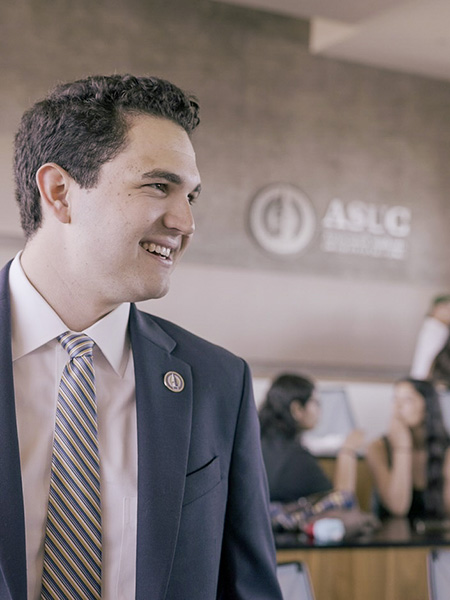
Courtesy of Max Rodman
Later that day, “around 6 p.m. until about 9 p.m., [the neighbors] were texting about all the smoke alarms going off,” the third-year political science major said. “In about three hours, the Alphabet Streets were gone.” Those streets, which form a neighborhood within Pacific Palisades, have unique names that follow the alphabetical order. Rodman grew up there, playing baseball, helping his family run the annual Fourth of July parade and fundraising for the public schools.
“I have a room here on campus, and I have a few of my things here,” he said, “but I lost all my clothes. … I wish I’d thought to grab, but I didn’t have time, my first home run ball from when I was nine or 10, jerseys, bobbleheads, baseball cards — I had a huge collection. … Pretty much everything is gone.”
Rodman’s response, however, has been to raise relief money for Pacific Palisades High School, his alma mater, which was seriously damaged. And as an ASUC senator, he’s helped set up The Disaster Fund to provide tuition assistance for students affected by catastrophes.
“I feel a responsibility to do things, to find ways to address problems,” he said. “It makes processing [the fire] easier for me.”
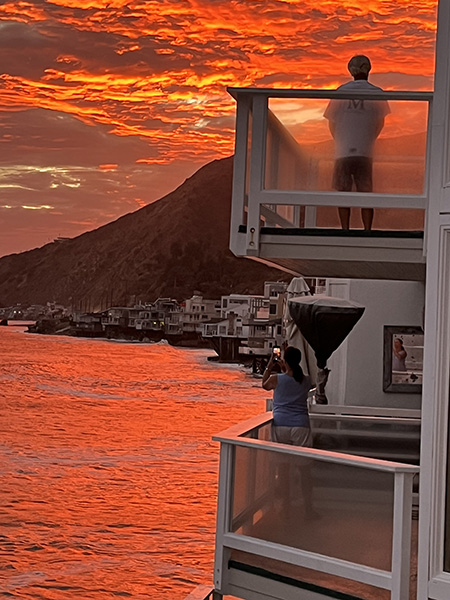
David Murray
Meanwhile, staff member David Murray mourns the house he grew up in in Malibu, which his stepfather built on Pacific Coast Highway. It sat on pilings, and the ocean would surge underneath it at high tide. As a teen, he practiced drums three hours a day and played with bands in the basement.
In high school in November 1993, Murray and his brother and stepfather stood on the roof of the same house, spraying water while holding onto the chimney in the fierce winds as another catastrophic fire approached.
“That time, it survived due to massive firefighter support,” he said. “This time, with just a handful of trucks and stronger winds, it perished.”
“The house was a physical item, …, but it is almost like a person because it is your home, where many memories were made and stored,” said Murray, a business systems analyst and web developer for Undergraduate and Interdisciplinary Studies. “When it’s gone in such a hard-to-look-at way, and not in a way where you could slowly say goodbye, … I’ve never had to go through that before.
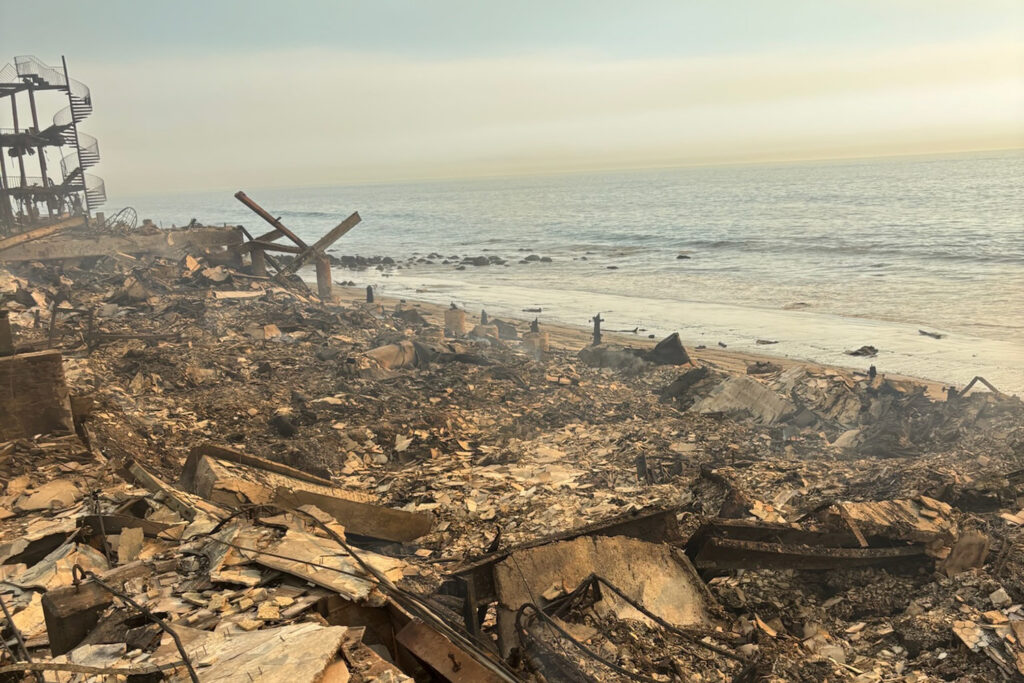
Courtesy of David Murray
“This process, when you go through it, you feel like you’ve got a handle on what you’re feeling and thinking, and then I’ll see my keys to the house, and I want to cry. They’re keys to a house that no longer exists.
“But mostly I feel sympathy and empathy for my parents. They lost everything.”
When fires of any kind threaten, ‘show up for each other’
Like Wall and Murray, Schell hasn’t seen the ruins of his family’s property in person, and his hometown. “The plan is to go down there,” he said. “The question is when.”
From Northern California, he’s juggling work and helping his relatives with next steps, like setting up a P.O. box, making sure the utilities are shut off, and exploring temporary housing and how to file recovery paperwork.
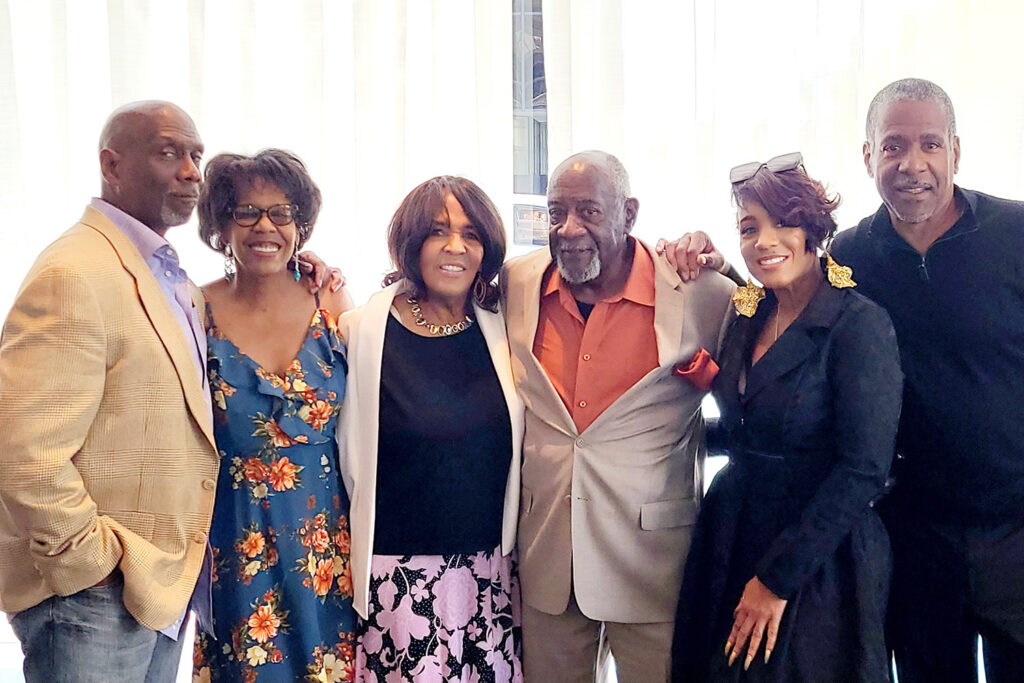
Courtesy of the Washington and Schell family
The hardest part, he said, “is that many in our [Altadena] community are expected to work, in some instances days after the tragedy. Though our entire community has rallied to uplift and support one another in the immediate aftermath, a long, tough road to recovery steeped in pain will likely come into conflict with broader societal pressures to move on.
“And for my family and many others, their lives are irrevocably changed — forever.”
Schell’s research explores the intersection of animal behavior, physiology, urban biodiversity conservation, environmental justice and One Health to investigate how carnivores adapt to life in cities. He said his lab’s logo features a coyote, “the avatar we lean on to help tell stories that for many are hard to hear because their ears are closed to hearing about environmental justice and equity.”
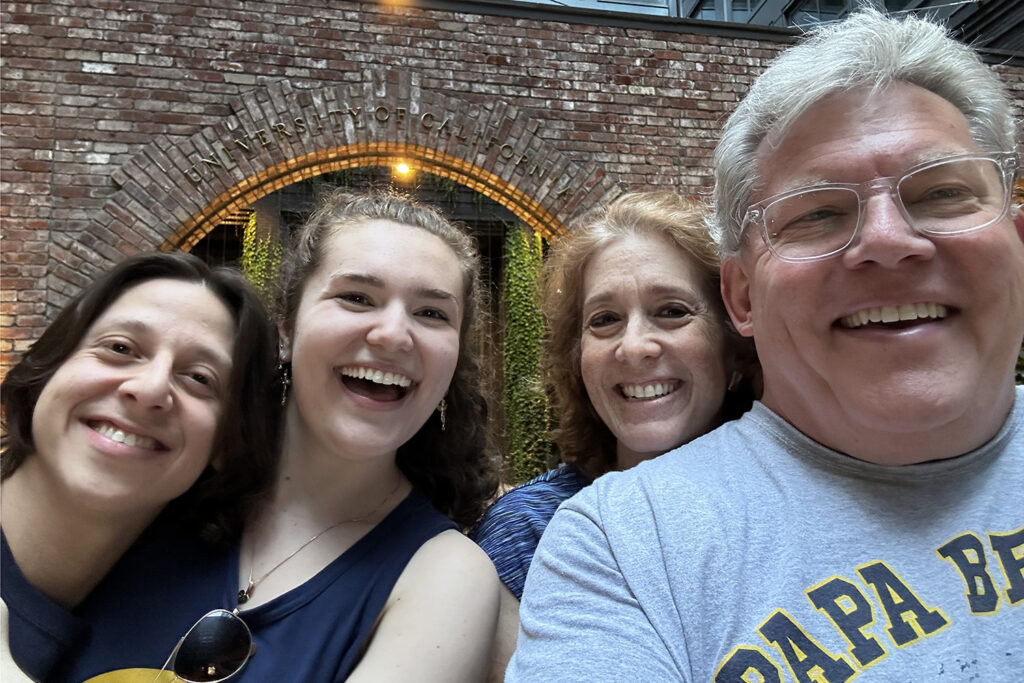
Erin Wall
The recent LA fires “are emblematic of our society’s inability to slow down and understand the larger implications of how we relate to nature,” said Schell. “As painful and traumatic as they are, they’re a reminder that we can’t hold onto everything. We have to learn to let things go.”
Yet, we must hold onto community, he said, “even when the fires around us are burning,” whether environmental or political.
“Fires strengthen and bring us together, that’s been no more true than it is today,” said Schell. “We need to show up for each other … we can’t pretend this is business as usual.”